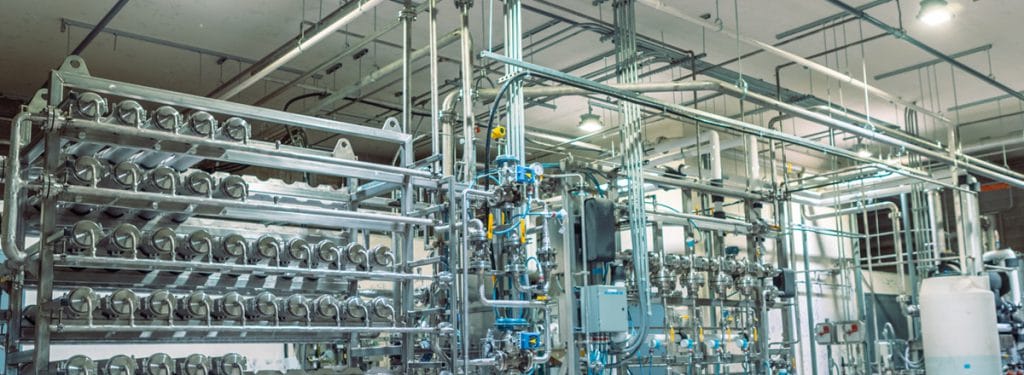DMT Standardization in Renewable Natural Gas (RNG) Projects
How standardized and pre-engineered biogas upgrading plants will benefit RNG development and the industry itself.
Standardization provides multiple project optimization opportunities for renewable natural gas (RNG) developers working on biogas upgrading plants. For DMT International, there is strong data to support efforts to standardize on pre-engineered biogas systems. Take, for example, the dairy industry in North America. There is a certain amount of homogeneity amongst dairy farms through similar layouts, facilities, and methods for milking. This makes core dairy farm operations characteristically similar.
What is standardization?
The main objective of standardization is to ensure uniformity within the product line. Additionally, standardization is the effort to consolidate a particular product offering so that there is a broader application for these units. This contrasts a scenario where each application requires a custom engineered solution, resulting in increased time, labor, and costs.
DMT’s standardization approach allows for the deployment of a range of biogas upgrading systems. This only requires small configuration modifications before dispatch into the field.
What can DMT offer using the standardization approach for renewable natural gas projects?
Reduced Costs.
There is a significant reduction in capital expenditure (CAPEX) as a result of volume purchases and associated economies of scale. Additionally, there is a reduction in total engineering costs due to pre-engineering. DMT can reduce costs further through strategic alignment with their vendor network. Instead of fabricating a different plant for each project, vendors work from a pre-engineered template. Fabricating plant components on a repetitive basis inherently reduces costs and increases efficiencies.
Shorter delivery times.
DMT delivery times will also significantly reduce with a standardized approach, particularly for multi-site RNG projects. With multi-site RNG projects, several similar sized systems fall under a single contract. Delivery to site for the first plant is typically within the industry average delivery period. But with each subsequent plant, the delivery occurs more and more rapidly. Assuming the grid interconnect infrastructure is ready, a developer can begin generating revenue from the advanced sale of the renewable natural gas much earlier than anticipated. If a plant is delivered early, the additional revenue collection is significant, providing a massive boost to the project business case. In one scenario, DMT calculated a total of $2,000,000 in early revenue for both LCFS and RIN revenue streams.
Standard Spares.
With standardized systems comes the advantage of standard spares. This simplifies the post-sales service of renewable natural gas plants. Furthermore, DMT’s consolidated spares holding strategy can cost-effectively manage the spare needs of these standardized systems. This is particularly beneficial for multi-site contracts, in regards to comprehensive asset management, where RNG plants are located close to one another.

What does standardization for renewable natural gas plants look like?
DMT focuses on a base product design that’s engineered to be easily modifiable. This standard base product includes the associated skid-mounted process units which support the core of the Carborex® MS plant, including the dehydration skid. Even the compressed gas treatment skid and actual membrane rack are fabricated as modules, which are easy to add for additional capacity requirements. The aim is a design that is as widely applicable and flexible in its threshold to be modified. In combination, these two concepts will allow a standardized system to be universally applicable.
Standardization is not new. DMT has carefully studied global and national market trends to identify which flow rates to standardize around. Their market and sales intelligence reveals what the market is asking for. With this approach, standardization will be a milestone not only for DMT’s project execution but also a milestone for the renewable natural gas industry itself, both nationally and globally.
